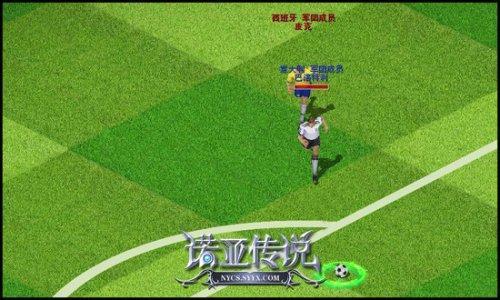The UEFA European Championship, commonly referred to as the Euro Cup, is one of the most prestigious football tournaments in the world. It brings together the best national teams from across Europe to compete for the coveted title every four years. As a global event, the Euro Cup not only showcases the highest level of football but also enriches the English language with a plethora of footballspecific vocabulary and phrases. In this article, we will explore the linguistic landscape of the Euro Cup, examining the terms, phrases, and expressions that define this thrilling competition.
1. The Basics: Understanding Football Terminology
Before diving into the specifics of the Euro Cup, it's essential to grasp the fundamental terms used in football. Here are some key words and phrases:
Goal
: The act of kicking the ball into the opponent's net, resulting in a point.
Penalty Kick
: A free shot at the goal from the penalty spot, awarded for a foul committed by the defending team in the penalty area.
Offside
: A rule that prevents attacking players from being ahead of the ball and the secondlast opponent before a pass is made.
Yellow Card
: A caution given to a player for unsporting behavior.
Red Card
: A sendingoff offense, resulting in the player's dismissal from the game.
2. Euro Cup Specifics: The Language of Competition
The Euro Cup introduces additional terminology that is specific to the tournament:
Qualifiers
: Preliminary matches where teams compete to secure a spot in the Euro Cup finals.
Group Stage
: The initial phase of the tournament where teams are divided into groups and play roundrobin matches.
Knockout Stage
: The elimination rounds that follow the group stage, where teams play until there is a winner or the match is tied, leading to extra time or penalties.
Host Nation
: The country that organizes and hosts the Euro Cup.
3. Tactical Terms: Strategies and Formations
Understanding the strategic language of football is crucial for discussing the Euro Cup. Here are some common tactical terms:
Formation
: The arrangement of players on the field, such as 442, 433, or 352.
Defensive Line
: The group of defenders who play closest to their own goal.
Midfield
: The area of the field where most of the action occurs, and the players who control this area are crucial for linking defense and attack.
CounterAttack
: A rapid transition from defense to attack, often catching the opponent off guard.
4. Player Roles and Positions
Each player on the field has a specific role and position, and understanding these can enhance your appreciation of the game:
Goalkeeper
: The player who guards the goal and is the only player allowed to use their hands within the penalty area.
Defender
: Players who primarily focus on preventing the opposition from scoring.
Midfielder
: Players who link the defense and attack, often involved in both defending and attacking.
Forward/Striker
: Players who focus on scoring goals.
5. The Language of Commentary and Analysis
Commentators and analysts use a rich vocabulary to describe the action during the Euro Cup:
Bicycle Kick
: A spectacular overhead kick where the player kicks the ball backward in midair.
Man of the Match
: The player deemed to have played the best in a particular match.
Corner Kick
: A restart of play where the ball is kicked from the corner of the field into the penalty area.
Free Kick
: A set piece awarded after a foul, where the attacking team takes a shot at goal without any defenders in the way, except the goalkeeper.
6. Celebrating Success: The Language of Triumph
Winning the Euro Cup is a monumental achievement, and the language reflects the magnitude of this success:
Champions
: The winning team of the Euro Cup.
Golden Boot
: The award given to the top goal scorer of the tournament.

Player of the Tournament
: The player who has performed exceptionally well throughout the competition.
7. Conclusion
The Euro Cup is not just a showcase of football prowess but also a celebration of language. The rich vocabulary associated with this tournament enriches the experience of watching and discussing football. As fans gear up for the next Euro Cup, understanding and using this specialized language can enhance their engagement with the sport and deepen their appreciation for the beautiful game.
In conclusion, the Euro Cup is a linguistic feast for football enthusiasts, offering a rich tapestry of terms, phrases, and expressions that capture the essence of the competition. Whether you're a player, a fan, or a commentator, mastering the language of the Euro Cup is essential for fully enjoying and understanding the intricacies of this beloved sport.

